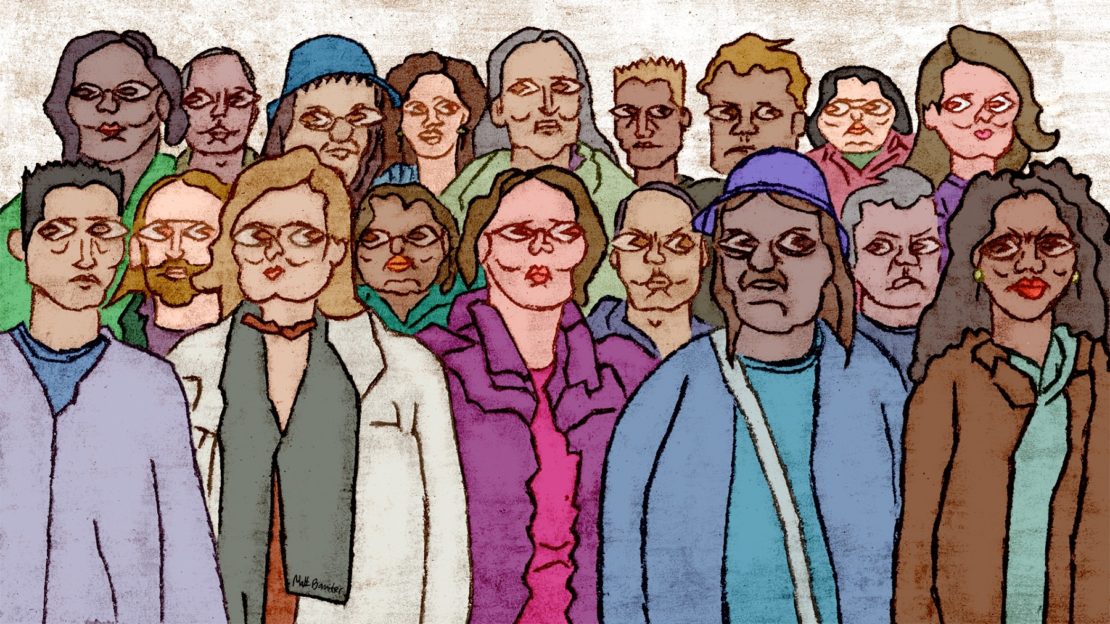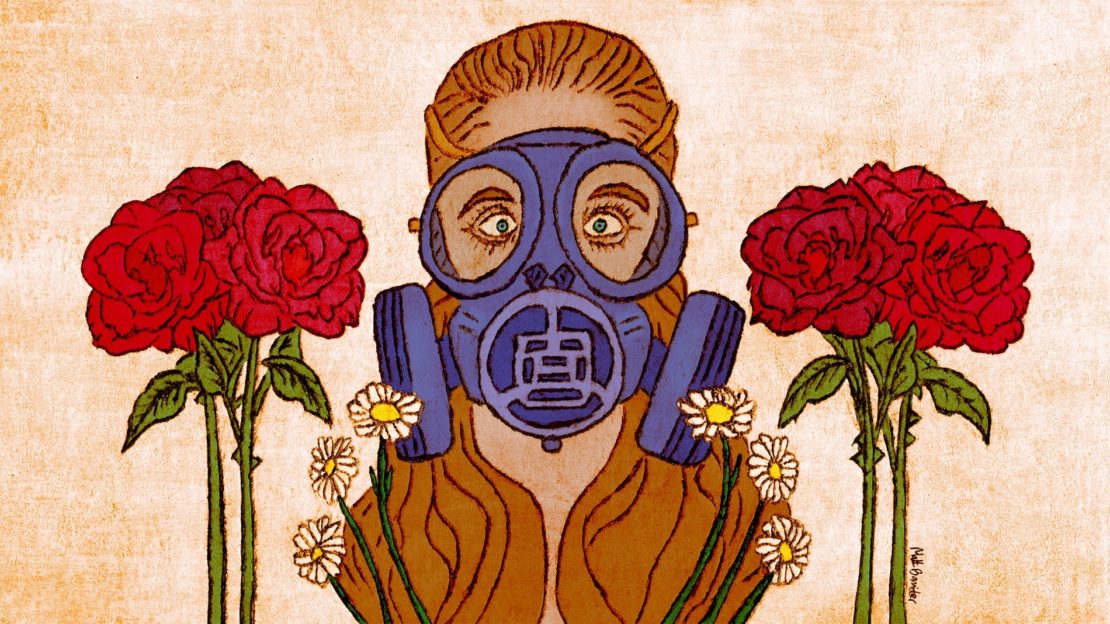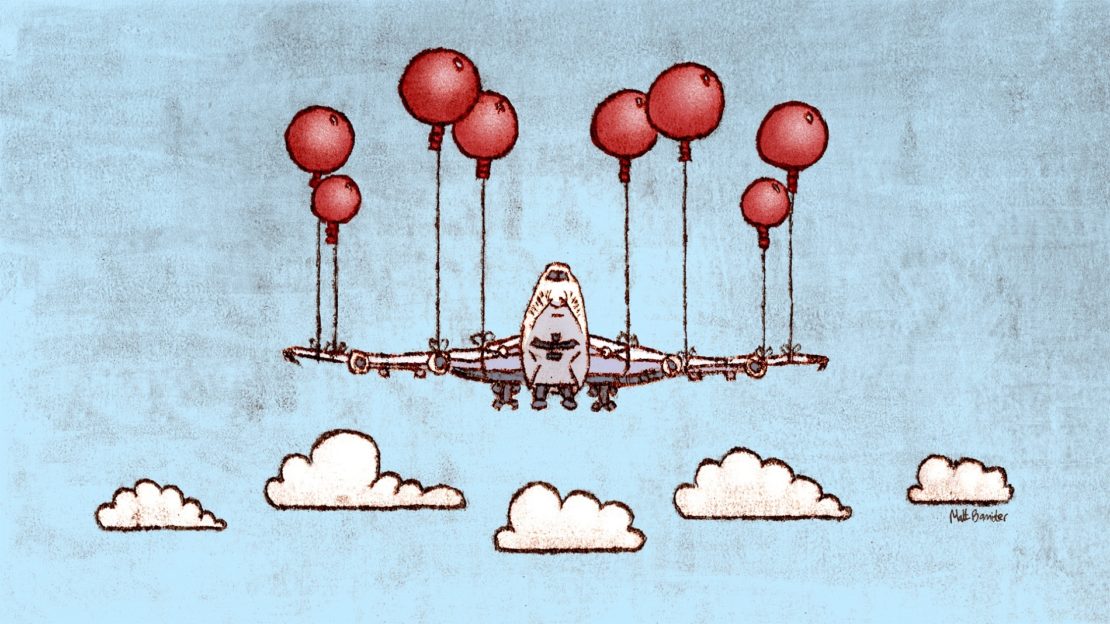
Who can you trust in a post-truth world?
Trust has always been a dangerous business. Every instance of it brings the risk of let-down, disloyalty and betrayal. Still, in recent times, the vulnerability inherent in trust seems more pronounced. Technological advancements enabling increased access to information mean that awareness of corporate scandals, fake news and political lies has increased exponentially: Volkswagen; the Panama Papers; giving £350m a week to the NHS; Hillary's emails; the Pope's supposed support of Trump. The list goes on. Of course, our access to information also makes it easier to learn about the good being done in the world. But somehow scandal always lodges in the memory better than integrity. As a result, it is hard to resist being conditioned to expect that just about everything we read in the news or hear an 'expert' say will turn out to be a lie, politically motivated, or simply wrong.
This scepticism lies at the heart of our 'post-truth' and 'post-trust' times. And yet, just when truth is said to be irrelevant, and trust all but gone, those concepts feature heavily in contemporary social discourse. This is no coincidence. As the late philosopher Annette Baier said: "We inhabit a climate of trust as we inhabit an atmosphere and notice it as we notice air, only when it becomes scarce or polluted."
In this era of post-truth, scandals, falsity and deception have created a vacuum, leaving many of us all the more aware of just how scarce truth and trust seem to be.
The distrust that characterises so much of the world today could in fact be positive
That trust is more scarce is not just a perceived reality, but a measurable one. The PR firm Edelman has been assessing global levels of trust for the past 17 years. Their most recent Trust Barometer reports that:
Two-thirds of the countries surveyed are now 'distrusters'
Less than 50 per cent trust in the mainstream institutions of business, government, media and NGOs to do what is right
Over two-thirds of the general population do not have confidence that current leaders can address their country's challenges
The media is distrusted in more than 80 per cent of countries surveyed
For Edelman, these findings amount to a "crisis of trust" because they find a correlation between trust and societal functioning:
We have moved beyond the point of trust being simply a key factor in product purchase or selection of employment opportunity; it is now the deciding factor in whether a society can function. As trust in institutions erodes, the basic assumptions of fairness, shared values and equal opportunity traditionally upheld by 'the system' are no longer taken for granted.
Because of its relationship to social functioning, low levels of trust are, indeed, concerning. But if a reduction in trust means that fairness, shared values and justice are no longer taken for granted, the distrust that characterises so much of the world today could in fact be positive. For, while fairness, shared values and justice are necessary for societal well-being, they ought not to be taken for granted. Each historical stand against tyranny shows that the sustainability of values like justice and fairness requires them to be actively defended.

The world may be experiencing a crisis of trust. But the crisis cannot be that trust is merely low. For trust is not always best, and more trust is not always better. If the projects that trust enables collaborators to complete are corrupt, busting trust can be appropriate. Whistleblowers are good examples of this: in leaking secrets, they violate a trust, but for a good reason. Too much trust is also undesirable insofar as it enables the abuse of power. The checks and balances built into the American political system exist for this very reason: the relationship between citizens and such powerful leaders is not one that should be characterised solely by trust.
Just as trust is not always best, distrust, often thought to be a sign of interpersonal or societal dysfunction, can be appropriate. The key is to cultivate trust that tracks trustworthiness. If a boss, partner or government lacks the competence, motivation or good character needed to uphold the trust placed in them, distrust, rather than trust, is reasonable and appropriate. It is for this reason that the current low levels of trust are understandable. A rebuilding of trust may help society function more smoothly, but the current threat of ambiguous news and politicians who 'construct' their own truth make distrust, rather than trust, appropriate.
While trust ought to track trustworthiness, there is at least one instance where trust may be well-placed despite the absence of trustworthiness: when one chooses to trust another for the sake of helping them cultivate trustworthiness, or because one loves them.
For example, just as a parent gives a pet to a child, not because they believe the child to be responsible, but to help teach them responsibility, trust can be given to others to help them develop trustworthiness. Also, in relationships characterised by a high degree of intimacy (such as marriages, partnerships and close friendships) to withhold trust because of another's faults goes against the very nature of the relationship. Part of what sets intimate relationships apart is the expectation that the trust in a friendship, partnership or marriage is strong enough, and generous enough, to withstand the imperfections and moments of untrustworthiness that occur in the relationship from time to time. It should be noted, however, that these opportunities to place trust well despite a lack of trustworthiness are more suited to interpersonal relationships than to the much less intimate engagement between the public and social institutions. It may be right to trust a partner because you love her, but it is less clear that one should trust a president or journalist with such generosity.
Sign up to our newsletter
If the institutions that no longer enjoy healthy amounts of public trust are undeserving of it – that is, if they actually are untrustworthy – then the distrust reported by Edelman is well-placed. And if that is the case, then the responsibility for taking trust forward lies, at least in part, with the businesses, media groups, NGOs and governments that need to cultivate better trustworthiness and do the slow, challenging work of communicating that trustworthiness to the public. But, importantly, responsibility for cultivating well-placed trust in the post-truth era does not lie solely with those would-be trusted parties. Even if they cultivate integrity, and root out all deception in their ranks, levels of public trust may continue to ebb away. This is because distrust is quasi-perceptual; like spectacles, it frames what we see. And if left unchecked, a lingering distrust can cause one to withhold trust, even from those who really are deserving of it.
Not often discussed, this risk of misplaced distrust is the quiet threat of our post-truth era. For example, it is understandable to distrust the media production company WTO5 after they published the fabricated story that the Pope had endorsed Trump. Likewise, in the wake of its emissions scandal, it is reasonable to become sceptical of Volkswagen. But if that distrust is allowed to run amok, disposing one to be closed to new information suggesting WTO5 or Volkswagen have changed their ways and can now be trusted, it ceases to be reasonable. Distrust also becomes degraded when, as often happens, it mutates from local scepticism of a scandalised entity to a blanket concern about all related individuals or organisations. For example, one might move from distrusting Volkswagen to believing that all automobile manufacturers are bent on side-stepping emissions testing.
For trust to be well-placed, distrust must be valued as highly as trust. But in personal, professional and social life we must also take care to ensure that it is possible for untrusted parties to become appropriately trusted. Due to distrust's quasi-perceptual nature, this can be incredibly difficult. Instead, from the perspective of scepticism, all evidence about another individual or organisation can seem to support distrust.

Remaining open to those we distrust is further complicated by the reality of hard feelings. When one is the direct victim of a betrayal, strong anger and resentment is normal. And when we hear about an act of betrayal committed against someone else, or when we read about an alleged scandal, indignation can also rush in. Such feelings can stop us from being willing to even consider evidence suggestive of reform on the part of the guilty party. Caught in bitterness, it is tempting to sacrifice the truth because it feels, at least in the moment, more satisfying to have our distrust confirmed.
In the wake of violated trust, anger, resentment and indignation are appropriate. And bitterness is understandable. But they can fuel the spread of distrust, inhibiting the pursuit of truth and blocking what could be well-placed trust.
To take trust forward in this era of post-truth, then, social institutions must work to be worthy of public trust, but they should not be held solely responsible for the quality of public distrust. Each individual member of the public also has a role to play in ensuring their distrust does not run amok, which is difficult. But it can be done.
An important first step to cultivating well-placed distrust is developing greater self-awareness. By understanding what is going on at the emotional level inside ourselves, we are better able to identify when distrust is fuelled by anger. Simply being aware that distrust can be misplaced can help with this. But we can also cultivate self-awareness in this area by pausing to consider the source of our distrust. Is it based on a well-established belief that the object of our distrust is in fact untrustworthy? Do we have good reason to think they actually lack competence or are unlikely to come through for us? Or is the distrust we are experiencing more strongly characterised by anger, a sense of injustice, or the desire to withhold something from the distrusted party?
It can be uncomfortable engaging with such questions because they make us look deep into what may be upsetting. Also, answering such questions truthfully requires humility, which can be difficult in the heat of anger. And so we may need to give ourselves ample time to critically assess our distrust. But taking the time to do so is vital for cultivating well-placed trust.
Every instance of trust brings the risk of let down
If, after reflecting, we find that our distrust is based on hard feelings, that doesn't necessarily mean it is misplaced and should be abandoned. But because hard feelings can cloud our perception of others, and so potentially be misplaced, something like forgiveness may be needed to allow a more objective distrust or trust to take its place. It is something like forgiveness that is needed here. Not all attempts to manage distrust will involve giving up hard feelings towards those who directly offended us and have sought restoration (both conditions usually thought to be necessary for forgiveness). But the step that is needed is like forgiveness because it involves letting go of hard feelings.
It is important to note that just because hard feelings are relinquished, it doesn't mean one will necessarily come to a place of trust; nor is that necessarily the goal. Rather, in identifying and giving up hard feelings, the aim is to position oneself so that any trust or distrust is held for good reason rather than being a knee-jerk emotional response.
Explore
Can you run a government on the blockchain? Political parties after Brexit and Trump Brexit: How systems changeThe reality of the post-truth era is that it is hard to know what to believe. And so even if institutions take steps to ensure their own trustworthiness, and members of the public also take responsibility for their own distrust, it may still be hard for trust to get started. For example, one may have rid themselves of all hard feelings toward social institutions, but still be unsure which facts about those institutions to believe, and so remain unsure if it is reasonable to trust them. However, a principle from the philosophy of trust can be helpful to take trust forward when facts are dubious: trust is a type of reliance, but it is not merely reliance. Understanding this distinction sheds light on how mere reliance can be used to scaffold trust in uncertain times.
In all instances of trust, we rely on something or someone. But it is possible to rely without trusting. For example, in a rural part of the country, one might have to rely on a sole, local doctor for medical care despite suspecting him of lacking competence. Likewise, it is possible to rely on an individual or organisation while checking up on them, perhaps by fact-checking or making use of transparency initiatives. But trust cannot survive such checking. Once we begin such micromanaging, it becomes clear we do not really trust others to do what we are counting on them for.
Because it is possible to rely on others despite distrusting them, it is logically possible for the public to rely on social institutions despite being uncertain of how trustworthy those institutions really are. Such reliance in turn creates an opportunity for institutions to reveal their trustworthiness, or lack thereof, thus giving the public greater reason to trust or distrust.
Patient engagement with the National Health Service in the UK provides an example of how mere reliance can lead to trust. A 2006 Ipsos MORI study assessing patient and public satisfaction with the NHS found that while the public satisfaction with GP, inpatient, outpatient and accident and emergency services was below 60 per cent, patient satisfaction rose to 80 per cent and above. These findings suggest that something positive occurs as people actually engage with the NHS. It is not clear whether all those patients who reported satisfaction with the health service would have also said they found the NHS to be trustworthy; but by using the service, all of them did rely on it. And as they did so, they were given the opportunity to come to know more about the NHS and make a more educated decision about whether or not trust of that institution is warranted.
To rely is not the same as to trust. But because it is possible to rely while harbouring a good deal of distrust, engaging mere reliance in this time of post-truth provides one practical road to well-placed trust and distrust.
Because trust is dangerous – because it always brings with it the risk of let-down and betrayal – it can be tempting to withhold trust until certainty about how governments and brands will behave is known, or until the complete veracity of a published fact has been checked. But it has never been possible to have complete certainty about what others will do. And the nature of scientific discovery means that facts are always changing. This does not mean that the fake news, corporate mismanagement and political deception that makes trust and truth so timely should be allowed to flourish. But the pursuit of well-placed trust should be tempered with the understanding that the human ability to gain certainty and control over life is limited. It is because of this very truth that trust matters at all.